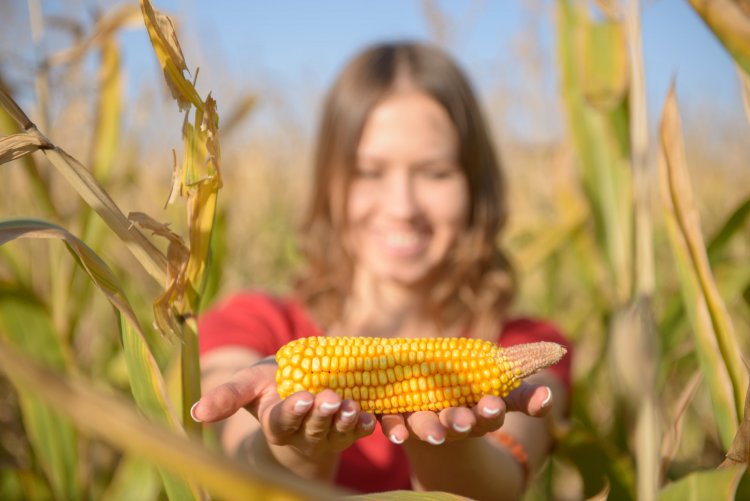Maize: A Staple Crop with a Rich History, Diverse Uses, Health Benefits, and Culinary Versatility
Maize, scientifically known as Zea mays, stands as a testament to human ingenuity, adaptability, and agricultural prowess. Originating from Mesoamerica over 10,000 years ago, maize has evolved from a humble crop cultivated by ancient civilizations to a global staple with diverse uses and significant health benefits. This article explores the rich history, cultivation practices, nutritional value, health benefits, culinary versatility, and industrial applications of maize.

Historical Background
Maize's journey from its origins in ancient Mesoamerica to its global prominence today is a testament to its resilience and cultural significance. Indigenous peoples, including the Maya, Aztec, and Inca, revered maize as a sacred crop, embodying spiritual, cultural, and economic significance. Its domestication marked a turning point in human history, fueling the rise of complex societies and enabling agricultural expansion across the Americas.
Cultivation and Varieties
Maize cultivation has diversified over millennia, encompassing a vast array of climates, soils, and growing conditions. Modern maize varieties range from traditional landraces to genetically improved hybrids, tailored for specific traits such as yield, disease resistance, and nutritional content. Sustainable farming practices, including crop rotation, conservation tillage, and agroecological approaches, are essential for maximizing maize's productivity while minimizing environmental impact.
Nutritional Value and Health Benefits
Maize offers significant nutritional value and health benefits, contributing to overall well-being when incorporated into a balanced diet. Rich in carbohydrates, fiber, vitamins, and minerals, maize provides sustained energy, promotes digestive health, and supports immune function. Yellow maize, in particular, is a good source of beta-carotene, a precursor to vitamin A, essential for vision, skin health, and immune function. Additionally, research suggests that bioactive compounds found in maize may possess anti-inflammatory and anticancer properties, although further studies are needed to elucidate their mechanisms and potential health implications.
Culinary Versatility
Maize's culinary versatility knows no bounds, enriching cuisines worldwide with its distinctive flavor, texture, and nutritional profile. Cornmeal serves as the foundation for iconic dishes such as cornbread, tortillas, polenta, and tamales, while corn flour finds application in baking, confectionery, and snack production. Whole maize kernels are enjoyed boiled, grilled, roasted, or incorporated into salads, soups, stews, and casseroles. Maize-based snacks, including popcorn and corn chips, delight palates with their crunchiness and flavor diversity. Furthermore, maize starch and corn syrup play crucial roles as thickeners and sweeteners in food processing, catering to diverse culinary preferences and dietary needs.
Industrial and Commercial Uses
Beyond its culinary uses, maize serves as a versatile raw material for numerous industrial and commercial products. Corn ethanol, derived from maize starch, serves as a renewable biofuel, reducing greenhouse gas emissions and promoting energy security. Maize-based bioplastics offer a sustainable alternative to petroleum-based plastics, mitigating environmental pollution and resource depletion. Additionally, maize by-products, including corn stover and husks, find application in animal bedding, fuel production, and composting, maximizing resource efficiency and minimizing waste.
In conclusion, Maize's journey from ancient crop to modern staple is a testament to its enduring relevance and adaptability. As we navigate the complexities of the modern world, embracing maize's cultural heritage, nutritional value, and culinary versatility remains essential for promoting sustainable food systems, enhancing public health, and fostering agricultural innovation. By harnessing the full potential of maize, we can cultivate a brighter future for generations to come.
#Maize #Cultivation #Nutrition #HealthBenefits #CulinaryVersatility #IndustrialUses #Sustainability #Agriculture #FoodSystems #Biofuels #MaizeProducts #GlobalCuisine #HealthyDiet #FoodInnovation #CulturalHeritage
Disclaimer:
The information provided in this article is for educational purposes only and should not be considered medical advice. If you have any health concerns or are experiencing symptoms, it is important to consult with a healthcare professional, such as a doctor or clinic, for proper diagnosis and treatment. Always seek the advice of your doctor or other qualified health provider with any questions you may have regarding a medical condition. Do not disregard professional medical advice or delay in seeking it because of something you have read in this article.
What's Your Reaction?





















